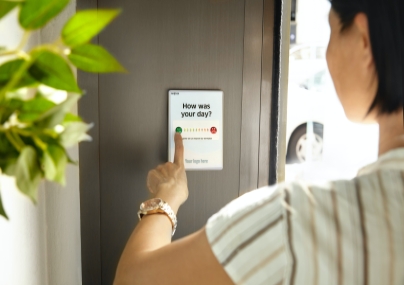Anbang has made headlines again.
Just a day after the Beijing-based insurance company agreed to purchase U.S. hospitality group Strategic Hotels & Resorts for $ 6.5 billion, it led a consortium that trumped Marriot International’s $12.2 million bid for Starwood Hotels& Resorts with an offer worth around $13 billion.
Starwood’s portfolio includes world-famous, stunning properties such as Sheraton, Westin, W Hotels, St. Regis Hotel. Strategic Hotels' properties include the Four Seasons Washington, D.C. on Pennsylvania Avenue, the Westin St. Francis on Union Square in San Francisco and the beachfront Ritz-Carlton Laguna Niguel in Orange County, California.
While Starwood has yet to decide on whether to reject or pursue Anbang’s non-binding offer, the Chinese insurer's move underscores its mounting interest in U.S hotel real estate. In October 2014, Anbang agreed to pay $1.95 billion for the Waldorf Astoria Hotel in New York, a move its chairman Wu Xiaohui said brought the company "extra brand recognition" and business opportunities.
Given how China’s domestic economy is obviously flagging, this shopping spree seems unstoppable. According to CBRE, a global real estate services and investment firm, Chinese investors purchased $8.6 billion in U.S. commercial real estate assets last year, with a notable increase in hotel investments, which accounted for $5.8 billion or 30 percent of total Asian investment globally in the first half of 2015.
But there is one factor that may halt this trend: regulatory scrutiny. Bids by Anbang, which has close ties to current and former Chinese government officials, will most likely be reviewed by the Committee on Foreign Investment in the United States (CFIUS), an inter-agency grops that reviews deals for possible national security concerns.
A recent CFIUS report indicated a significant increase in the number of transactions reviewed for national security risks, with Chinese investors continuing to lead the pack.
CFIUS reviews, however, are unlikely to hinder real estate purchases among Chinese companies, according to Nathaniel Marrs, a partner at Latham & Watkins. “So far in real estate, like traditional real estate, no investment from China has been disapproved,” he told ALB in an interview. Unlike technology giants ZTE or Huawei, which constantly face blocks and scrutiny in the U.S., real estate is a relative safe industry for Chinese conglomerates intent on slaking their buying thirst.
Marrs also noted that Anbang's acquisition of Waldorf Astoria attracted particular attention from CFIUS because of its proximity to the United Nations headquarters and the involvement of many important government officials in the deal. But despite the probe, deal got approved eventually.
Because of the high turnover rate, U.S. hotels are always correlated with how the economy is recovering. And as middle-class and wealthy Chinese deal with a volatile stock market at home, a devalued yuan, and a lack of investment options, their interest in U.S. hotels is growing. Nevertheless, given the many domestic uncertainties facing China in 2016, its ability to invest in the U.S. this year remains to be seen.


